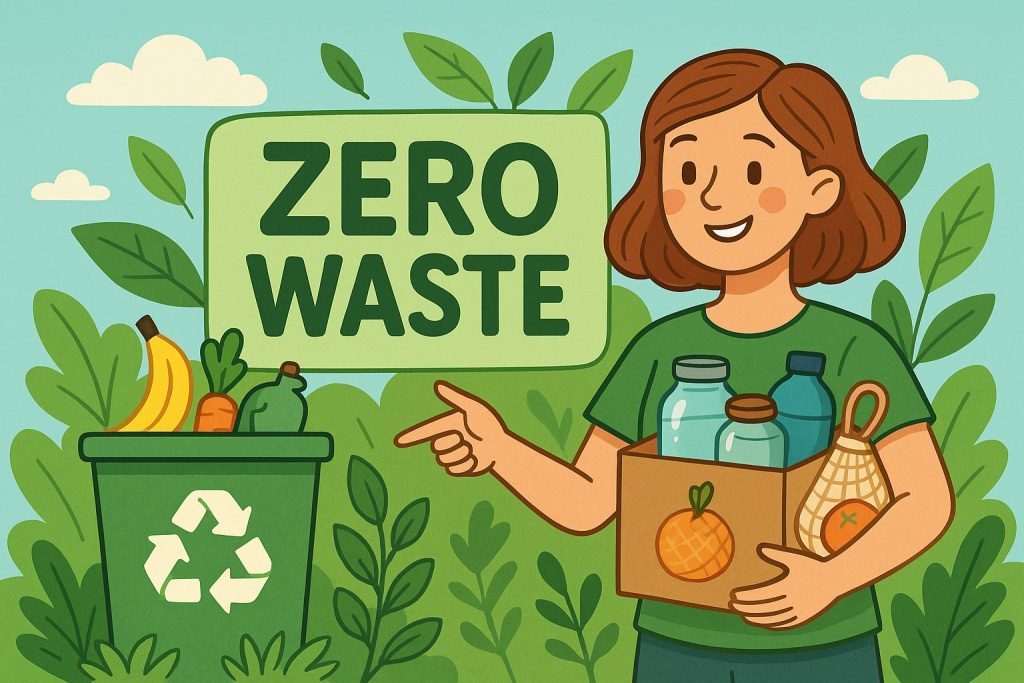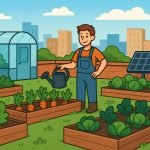The zero waste* movement is gaining attention around the world. But what does it actually mean — and how can ordinary people take part?
What Is Zero Waste?
Zero waste is a lifestyle and philosophy that encourages the redesign of resource life cycles so that all products are reused, and nothing is sent to landfills or incinerators*. The goal isn’t necessarily to produce absolutely zero trash, but to reduce waste as much as possible through smart choices.
This approach is based on five key principles often summarized as the 5Rs:
Refuse, Reduce, Reuse, Recycle, and Rot (compost).
Why Does It Matter?
Every year, the world produces over 2 billion tons of waste. A large portion ends up in the ocean or in landfills where it pollutes soil and groundwater. Many materials — especially plastic* — take hundreds of years to decompose.
Reducing waste helps conserve resources, fight climate change, and protect wildlife.
How to Get Started
You don’t have to change your whole life overnight. Here are simple steps to move toward zero waste:
- Refuse single-use plastics like straws, bags, and packaging.
- Reduce what you buy — choose quality over quantity.
- Reuse containers, bags, and clothes.
- Recycle properly and check local recycling rules.
- Compost food scraps and organic waste.
Carrying a reusable water bottle or shopping bag might seem small, but when millions of people do it, the impact grows.
Common Challenges
Zero waste isn’t always easy. Not every city has compost systems or recycling options. Some eco-friendly products are more expensive. But small, consistent steps can still make a big difference.
Glossary
- Zero waste* — a lifestyle aimed at sending no trash to landfills or incinerators.
- Plastic* — a synthetic material that can take hundreds of years to break down.


